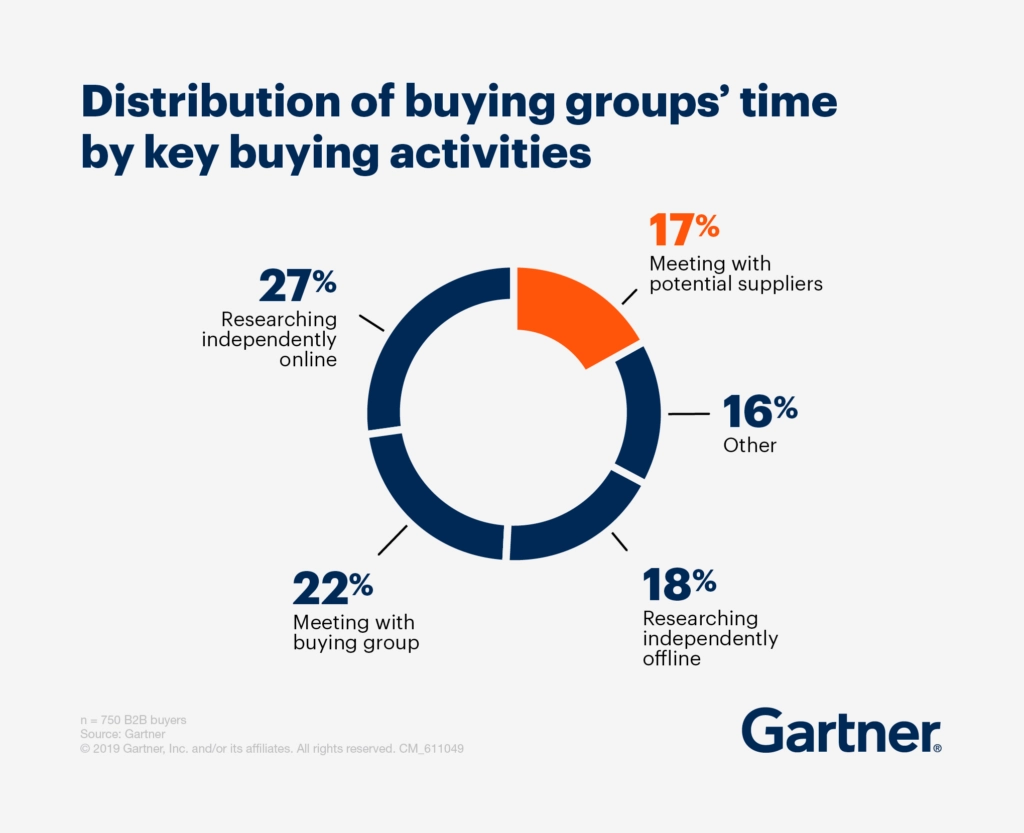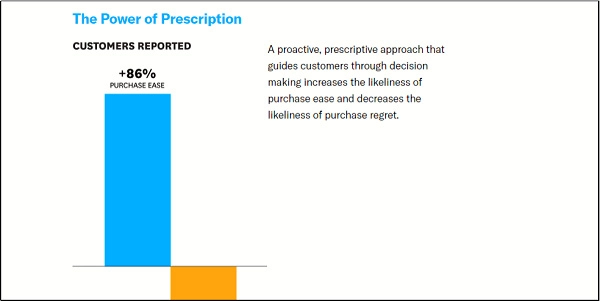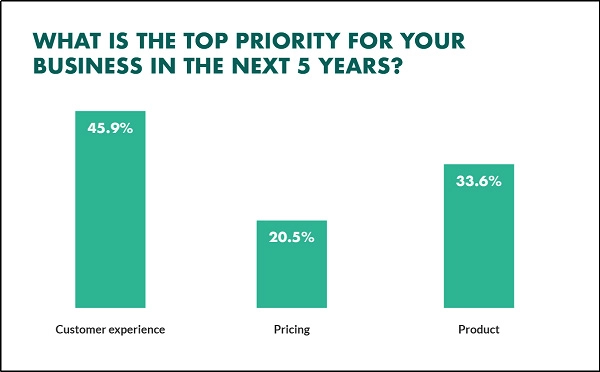
Introduction
The B2B buying process is complex and long. Infact, when you think about B2B buying, you must think about the various decision makers who participate in the process.
Just like consumers, B2B decision makers have emotional and rational needs that they need suppliers to fill. However, in the B2B market, these needs operate at company level. The B2B buying process distinguishes itself in two ways:
- The complexity of B2B decision making: The decision to buy a product for the business involves up to ten people with different expertise, according to Gartner.
- Accountability of decision makers: The people who make purchase decisions are often accountable to others in the organization.
But these are not the only aspects that make the B2B buying process distinct. The amount of time that decision makers invest in the process defines their buying process. For instance, Garter research shows that B2B buyers spent 17% of their time meeting potential suppliers and just 6% engaging sales people, as 82% of B2B decision-makers find sales reps to be largely unprepared. On the contrary, decision makers spend at least 45% of their time researching offline and online sources prior to making a purchase decision.

Factors That Influence B2B Purchase Decisions
- Product Performance
- Expertise
- Product Durability
- Product Pricing
- Production Capacity
- Timely Delivery
- Previous Experience
- Customer Service
- Returns Policy
- After-Sale Services
An article by Harvard Business School shows that B2B buyers consider at least 40 value elements when making purchase decisions. Whether they are buying software or hiring service providers, B2B decision makers evaluate a wide range of factors to determine how purchasing a product affects employee productivity or business operations. Some of these factors include compliance with regulations, product specializations, pricing and adherence with ethical practices.
1. Product Performance
Product performance is a key factor that B2B decision makers consider whenever they want to make a purchase. Evaluation of product performance transcends knowing about the features that products have and the benefits that it will offer the company. When considering product performance, decision makers want to know how the products they are considering solve their problems and how those products work.
To understand product performance, B2B decision makers review product demos, product descriptions, and white papers. They also invest time looking for social proof about the performance of products by reading customer reviews, testimonials and case studies. As a matter of fact, statistics show that 77% of B2B buyers in the evaluation stage identify case studies and testimonials as the most influential forms of content.
2. Expertise
B2B marketers invest heavily in content marketing including developing white papers, blog articles, guides and research reports. All this effort is geared at achieving one thing – positioning their company as a thought leader in their business niche. The main reason for doing this is to give B2B buyers access to their expertise whenever they search for solutions to their problems.
The flip side is also true – B2B buyers consider expertise when making purchase decisions. As such, they are likely to buy from a company that educates them about their problems and offers solid expert advice to them during the purchase process. This is clearly reflected in the fact that 68% of sales people hold the view that providing buyers with more information enables them to make better decisions.

Source: HBR
There are several ways that B2B buyers determine the expertise of potential suppliers, these include:
- Articles published online – company websites or guest posting on third party sites
- Industry reports developed by supplier companies
- White papers published on company sites
3. Product Durability
Durability is one of the key parameters that buyers use to assess product quality and sustainability. By definition, durability refers to the ability that a product has to last long without experiencing deterioration or requiring maintenance. Durable products go a long way in reducing wastage in the business and conserving resources.
Like in any other kind of purchase, product durability is at the heart of decision making for B2B buyers. As a matter of factor, buyers are likely to spend more buying a durable product than spend less on a product that is not durable. When evaluating product durability, B2B buyers want to know how long a product will work optimally, the different levels of functionality, product warranties available and upgrades that will be required.
There are various ways that buyers can learn about product durability during the buying process. These include:
- Reading customer testimonials and case studies
- Reading white papers
- Reading product descriptions
- Checking manufacturer certifications
4. Product Pricing
When B2B buyers make a purchase, they’re purchasing a collection of benefits that can be categorized broadly into functional benefits, economic benefits and emotional benefits. During the buying process, decision makers in B2B companies will consider the price of a product relative to its physical performance, the value it offers the company, the psychological feelings the product evokes among users and the time and money saving ability that the product has.
While B2B buyers place more weight on the value that a product or a service offers, they are also keen to see whether a product reflects that value. Other aspects that B2B decision makers consider when making purchase decisions are:
- Discounts
- Credits
- Allowances
- Transparency in product pricing i.e. checking whether there are any hidden costs.
B2B buyers will also compare product prices from different suppliers. In most cases, suppliers with the most competitive prices and no hidden costs carry the day.
5. Production Capacity
Beyond considering the quality of product that suppliers offer, B2B decision makers also consider the capacity of the supplier to supply the required products or services within the required timeframe. Supplier capacity is critical because placing a product order from a supplier who does not have the capacity to produce the quantity required will not only inconvenience the business, but also result in wastage of time and resources.
6. Timely Delivery
Delivery of products in a timely manner matters to B2B buyers. Though delivery of products in a timely and efficient manner is as easy as it sounds, B2B suppliers that are able to stand out of the competition. When evaluating supplier options, decision makers often consider the capacity that suppliers have to deliver the required goods or services within the set timeframe. Some important aspects that decision makers evaluate under this aspect are ordering and shipping procedures as well as safety of products during delivery including availability of insurance.
To evaluate these aspects, B2B decision makers browse supplier websites to read information pertaining to shipping options, costs, insurance, possible dates of delivery, maximum orders that can be placed at a go, and mechanisms for tracking the products when they are on transit. The decision makers opt to buy from suppliers that offer the best delivery deals depending on how soon the goods need to be delivered.
7. Previous Experience
Experience builds customer trust in the ability of suppliers to deliver on orders. To ensure that they choose suppliers who have the capacity to meet their demands, B2B decision makers evaluate the experience that potential sellers have in supplying products or services to companies that are of similar size. They do this by reading customer testimonials and case studies and conducting background checks on potential suppliers.
8. Customer Service
With the rising customer expectations and demands, customer service has become an extremely important aspect of the B2B buying process. Beyond buying products and services, customers want to be assured that they can get help as they use products or services as soon as they need it. Customer service shapes the experiences that B2B buyers have with your business. Surprisingly, statistics show that increasingly, B2B buyers are valuing experience more than they value product and pricing.

Most buyers are not willing to wait for days for their problem to be resolved. As such, B2B decision makers evaluate customer service options that suppliers make available before making a purchase decision. Some of the things that they’d consider are:
- Can the supplier personalize customer services to clients?
- Does the supplier website have a live chat option?
- Does the supplier provide a help center for customers who prefer self service?
- Will the supplier provide a dedicated account manager?
9. Returns Policy
When making purchases, B2B buyers anticipate to receive and use the products for an extended period of time. However, there are situations when the products malfunction and need to be returned to the supplier. When making purchase decisions, B2B buyers are often keen on finding out the returns policy that suppliers have. In the policy, they’d want to find out whether the potential suppliers accept returns, what the return process entails and whether refunds are offered for returned products.
10. After-Sale Services
For complex, high-price products, B2B buyers will often consider availability of after sale services. For instance, if a business is procuring a drive-through ordering system, decision makers will want the assurance that the company supplying the system will be available to repair the system when it breaks down during the warranty period. The decision makers will also want to be assured that the supplying company will be available to train the staff and provide technical backstopping to them until they are able to comfortably use the system.
Conclusion
The B2B buying process is long and highly complex because of the involvement of different decision makers. When making a purchase decision, these decision makers consider a wide range of factors to ensure that the products or services procured offer value and efficiency to the business over an extended period. If you are a B2B marketer or sales person, understanding all the ten things decision makers consider when making buying decisions will enable you to provide the information they need to make a decision that favors your company.
Our blog
Latest blog posts
Tool and strategies modern teams need to help their companies grow.

This comprehensive guide covers everything about service marketing—its unique chara...

Believe it or not, the concept of content sharing existed long before the Internet. I...

Sales analysis is essential to avoid inaccurate forecasts and identify improvement op...




